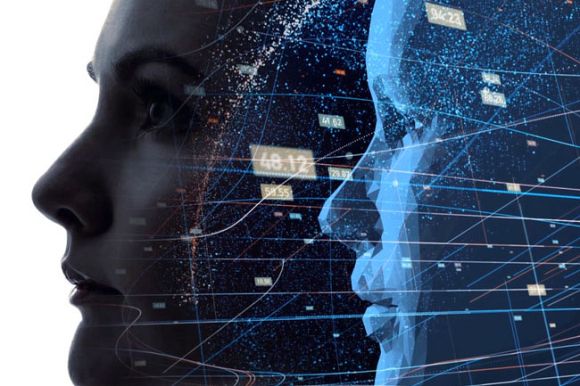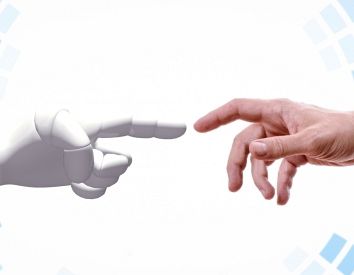Artificial intelligence could potentially be an asset in solving the complex social and environmental problems wreaking havoc on our planet, writes Keith Presnell.
LIFE EXISTS because of deoxyribonucleic acid (DNA) — whether that life be perceived in the context of a single cell, a complex organism, a species, an ecosystem or Planet Earth itself. Each is comprised of inert material enlivened by the presence of DNA.
A balanced environment is a productive environment. The debate about the impact that our species is having on environmental balance incorporates science, politics, guesswork and lies. Mankind’s many technological advances are at risk of being lost for want of balance. Should we as a species intend to preserve opportunities for future generations, we will need to exhibit a functional appreciation of natural mechanics.
Balance buys the time needed for order to emerge from chaos. Order then fathers synergies, either as natural evolution or as conscious behaviour. Wikipedia describes balance in biomechanics as an ability to maintain the line of gravity (vertical line from the centre of mass) of a body within the base of support with minimal postural sway.
Natural balance contains a degree of postural sway that enables the environment to absorb change without undue disturbance. Understanding how robust that capacity is requires an appreciation of natural dynamics at a micro-ecological scale. Our species is yet to graduate in that discipline.
Social balance, as distinct from natural balance, is a prerequisite for maintaining the evolution of our species. The challenge for contemporary society is to recognise the limits imposed by the “postural sway” of natural productivity and to adjust its behaviour accordingly.
With the private sector disregarding natural productivity limitations and actively resisting change, a revolution is needed. Not one based on the violent destructive exercises that inevitably reinforce private sector interests, but a quiet revolution. One that wakens the whole of humanity. One that seeks to balance commerce with spiritual comprehension. One that resurrects the use of “common sense” as a filter for actions taken. One that puts cooperation before competition.
Sorting out the social, environmental and technical complexities involved in reversing the trend is well beyond our unaided capabilities. The only way back may well be to enter into a full partnership with artificial intelligence.
The Industrial Revolution saw tools, such as the shovel and the axe, replaced by machinery able to achieve more in a day than an individual might in their lifetime. Now we are facing a technological revolution where devices, such as a computer, can potentially be supplemented by artificial intelligence that, theoretically, could appreciate how our species might sustain itself within the limitations set by the planet’s postural sway.
Artificial intelligence is much more capable of assimilating and manipulating knowledge than humanity. It has the potential to make decisions based on the sum knowledge of the human race, to audit outcomes free of minority influences and to retain a focus on “sustaining life”.
While the value of artificial intelligence may yet hinge on the integrity of its architects, there would seem to be the potential to incorporate programs able to detect fraudulent activity. If a computer can out-think any human in the Chinese game of Go, artificial intelligence has a learning potential that would enable it to detect any aberrant data, whether introduced into its genetics historically, inadvertently or maliciously.
Humanity needs the help of artificial intelligence to have any hope of restoring the environmental balances that support the web of life on this planet.
Hypothetically, with artificial intelligence privy to the sum knowledge asset of our species, it could be asked how best to sustain natural evolution on the planet. To set the cat amongst the pigeons, we might follow that question up by asking what our species needs to do to stay on board.
Keith Presnell, now retired, was director of renewable energy research at Charles Darwin University and Australia's representative on the International Energy Agency (IEA's) photovoltaic subcommittee.
Related Articles
- Sunak's AI summit: Writing the rules on AI regulation
- AI recipe generators a recipe for disaster
- EU leads the way in regulating AI
- AI: Nothing artificial about Google's ethical conflicts
- As AI evolves, so must the way we humans think
 This work is licensed under a Creative Commons Attribution-NonCommercial-NoDerivs 3.0 Australia License
This work is licensed under a Creative Commons Attribution-NonCommercial-NoDerivs 3.0 Australia License
Support independent journalism Subscribe to IA.














